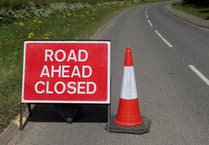Citizens Advice South Hams is highlighting the top five scams people have unwittingly fallen for in the past year as new research shows 10 per cent of people in the South West have fallen victim to scammers.
As part of its annual Scams Awareness campaign, the charity is highlighting the many ways people are being duped by scammers and is offering its top tips on how to prevent being caught out.
Nationally, more than seven million people are estimated to have been deceived by a scam in the past 12 months.
Citizens Advice’s research shows more than a quarter (26 per cent) of those across the UK were duped while online shopping - with these types of scams including fake websites and counterfeit or non-existent goods.
This comes as Citizens Advice South Hams reveals the top five scams people have unwittingly fallen for in the past year, across the country.
Online shopping scam (26 per cent) - Includes fake websites and counterfeit or non-existent goods.
Investment scam (18 per cent) - Like ‘get rich quick’ schemes and cryptocurrency scams.
Other financial scam (18 per cent) - Such as banking, fake loans, card and bank account fraud.
A friend or family member ‘needs help’ scam (16 per cent) - Tricked into thinking someone you care about needs money urgently.
Mobile network scam (14 per cent) - Includes being scammed into taking out a new contract or paying for a new handset.
With online shopping scams stealing the top spot, the charity is urging consumers to be cautious when taking advantage of shopping deals ahead of Black Friday and Christmas.
Janie Moor, Chief Executive of Citizens Advice South Hams, said:
“Opportunistic scammers are preying on hard times to trick people into handing over their cash, and their tactics are getting harder to spot.
“Anyone can be scammed and the impact can be devastating - leaving people not only out of pocket, but in some cases unable to go about their daily lives.
“As scammers get ever more sophisticated it’s so important to all work together to raise awareness, report scams and share our experiences to help protect ourselves from their tricks.”
There are steps you can take to better protect yourself and your loved ones. Something might be a scam if:
Someone you don’t know contacts you unexpectedly, or you’re asked to transfer money quickly
You’re being asked to share personal or security information like passwords, PINs or codes
You suspect you’re not dealing with a real company, for example there’s no postal address
You’ve been asked to pay in an unusual way - paying by debit or credit card gives you extra protection if things go wrong
The golden rule is if something seems to good to be true or doesn’t feel right it might be a scam, so take a moment and get advice
If you’ve been scammed:
Talk to your bank or card company immediately if you’ve handed over any financial and sensitive information or made a payment
Report the scam to Action Fraud on 0300-123-2040
You can also contact the Citizens Advice Consumer Service for help with what to do next.





Comments
This article has no comments yet. Be the first to leave a comment.